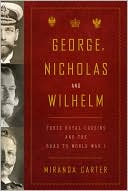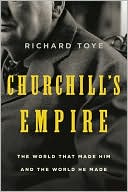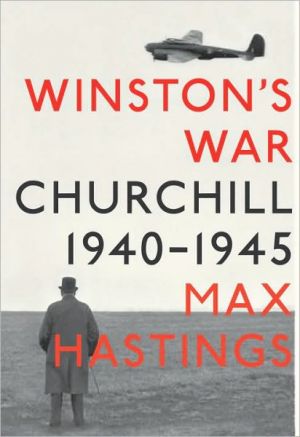A Journey: My Political Life
Tony Blair is a politician who defines our times. His emergence as Labour Party leader in 1994 marked a seismic shift in British politics. Within a few short years, he had transformed his party and rallied the country behind him, becoming prime minister in 1997 with the biggest victory in Labour’s history, and bringing to an end eighteen years of Conservative government. He took Labour to a historic three terms in office as Britain’s dominant political figure of the last two decades.\ \ A...
Search in google:
Tony Blair is a politician who defines our times. His emergence as Labour Party leader in 1994 marked a seismic shift in British politics. Within a few short years, he had transformed his party and rallied the country behind him, becoming prime minister in 1997 with the biggest victory in Labour's history, and bringing to an end eighteen years of Conservative government. He took Labour to a historic three terms in office as Britain's dominant political figure of the last two decades.A Journey is Tony Blair's firsthand account of his years in office and beyond. Here he describes for the first time his role in shaping our recent history, from the aftermath of Princess Diana's death to the war on terror. He reveals the leaderships decisions that were necessary to reinvent his party, the relationships with colleagues including Gordon Brown, the grueling negotiations for peace in Northern Ireland, the implementation of the biggest reforms to public services in Britain since 1945, and his relationships with leaders on the world stage-Nelson Mandela, Bill Clinton, Vladimir Putin, George W. Bush. He analyzes the belief in ethical intervention that led to his decisions to go to war in Kosovo, Sierra Leone, Afghanistan, and, most controversially of all, in Iraq.In frank, unflinching, often wry detail, Tony Blair charts the ups and downs of his career to provide insight into the man as well as the politician and statesman. He also looks ahead, to emerging power relationships and economies, addressing the vital issues and complexities of our global world.Few British prime ministers have shaped the nation's course as profoundly as Tony Blair, and his achievements and his legacy will be debated for years to come. Here, uniquely, we have his own journey, in his own words. The Washington Post - Leonard Downie Jr. …[a] well-written and perhaps unintentionally self-revealing memoir…
TWELVE\ 9/11: “SHOULDER TO SHOULDER”\ It is amazing how quickly shock is absorbed and the natural rhythm of the human spirit reasserts itself. A cataclysm occurs. The senses reel. In that moment of supreme definition, we can capture in our imagination an event’s full significance. Over time, it is not that the memory of it fades, exactly; but its illuminating light dims, loses its force, and our attention moves on. We remember, but not as we felt at that moment. The emotional impact is replaced by a sentiment which, because it is more calm, seems more rational. But paradoxically it can be less rational, because the calm is not the product of a changed analysis, but of the effluxion of time.\ So it was with 11 September 2001. On that day, in the course of less than two hours, almost 3,000 people were killed in the worst terrorist attack the world has ever known. Most died in the attack on the Twin Towers of the World Trade Center that dominated the skyline of New York. It was a workplace for as diverse a workforce as any in the world, from all nations, races and faiths, and was not only a symbol of American power but also the edifice that most eloquently represented the modern phenomenon of globalisation.\ The explosion as the planes hit killed hundreds outright, but most died in the inferno that followed, and the carnage of the collapse of the buildings. As the flames and smoke engulfed them, many jumped in terror and panic, or just because they preferred that death to being on fire. Many who died were rescue workers whose heroism that day has rightly remained as an enduring testament to selfless sacrifice.\ The Twin Towers were not the only target. American Airlines Flight 77, carrying sixty-four people from Washington to Los Angeles, was flown into the Pentagon. A total of 189 people died. United Airlines Flight 93, bound from Newark to San Francisco with forty-four on board, was hijacked, its target probably the White House. It came down in Somerset County, Pennsylvania. Its passengers, realising the goal of the hijack, stormed the cabin. In perishing, they saved the lives of many others.\ It was an event like no other. It was regarded as such. The British newspapers the next day were typical of those around the globe: “at war,” they proclaimed. The most common analogy was Pearl Harbor. The notion of a world, not just America, confronted by a deadly evil that had indeed declared war on us all was not then dismissed as the language of the periphery of public sentiment. It was the sentiment. Thousands killed by terror—what else should we call it?\ Opinions were forthright and clear, and competed with each other in resolution, not only in the West but everywhere. In the Arab world, condemnation was nearly universal, only Saddam ensuring that Iraqi state television played a partisan song, “Down with America,” calling the attacks “the fruits of American crimes against humanity.” Yasser Arafat condemned the acts on behalf of the Palestinians, though unfortunately, most especially for the Palestinian cause, the TV showed pictures of some jubilant Palestinians celebrating.\ The most common words that day were “war,” “evil,” “sympathy,” “solidarity,” “determination” and, of course, “change.” Above all, it was accepted that the world had changed. How could it be otherwise? The reason for such a description was also not hard to divine. The first attempt to attack the World Trade Center, in 1993, had been foiled, but the planning this time had obviously been meticulous. The enemy had been prepared to wait until it had accumulated the necessary means and opportunity.\ However, more than that, a terror attack of this scale was not calculated to do limited damage. It was designed for maximum casualty. It was delivered by a suicide mission. It therefore had an intent, a purpose and a scope beyond anything we had encountered before. This was terror without limit; without mercy; without regard to human life, because it was motivated by a cause higher than any human cause. It was inspired by a belief in God; a perverted belief, a delusional and demonic belief, to be sure, but nonetheless so inspired.\ It was, in a very real sense, a declaration of war. It was calculated to draw us into conflict. Up to then, the activities of this type of extremism had been growing. It was increasingly associated with disputes that seemed unconnected, though gradually the connection was being made. Kashmir, Chechnya, Algeria, Yemen, Palestine, Lebanon; in each area, different causes were at play, with different origins, but the attacks, carried out as acts of terror, were growing, and the ideological link with an extreme element that professed belief in Islam was ever more frequently expressed. Until 11 September, the splashes of colour on different parts of the canvas did not appear to the eye as a single picture. After it, the clarity was plain, vivid and defining.\ We look back now, almost a decade later when we are still at war, still struggling and managing the ghastly consequences which war imposes, and we can scarcely recall how we ever came to be in this position. But on that bright New York morning, not a cloud disturbing the bluest of blue skies, we knew exactly what was happening and why.\ We knew that so far as we were concerned we had not provoked such an outrage. There had been acts of terror committed against us: Lockerbie, the USS Cole, the U.S. embassy in Tanzania. We had tried to retaliate, but at a relatively low level. They were individual tragedies, but they did not amount to a war. They were the price America paid for being America. The other conflicts we reckoned were none of our business; or at least they were the business of our diplomatic corps, but not of our people.\ So those carrying out such acts were wicked; but they weren’t changing our world view. George Bush had won the presidency after the controversies of the most contested ballot in U.S. history, but the battle between him and Al Gore had focused mainly on domestic policy. At my first meeting with him—Camp David in February of the same year—his priorities were about education, welfare and cutting down on big government as he saw it.\ So there was no build-up to 11 September, no escalation, no attempts to defuse that failed, no expectation or inevitability. There was just an attack—planned obviously during the previous presidency—of unbelievable ferocity and effect. No warning, no demands, no negotiation. Nothing except mass slaughter of the innocent.\ We were at war.We could not ignore it. But how should we deal with it? And who was this enemy? A person? A group? A movement? A state?\ I was in Brighton that day, to give the biennial address to the Trades Union Congress. Frankly, it was always a pretty ghastly affair for both of us. As I explain elsewhere, I was frustrated they wouldn’t modernise; they were frustrated with my telling them how to do their business. Not that they were ever slow in telling me how to do mine, mind you. And sure-fire election-losing advice it was too. They ignored my counsel; and I ignored theirs. For all that, we sort of rubbed along after a fashion, and in a manner of speaking, and up to a point.\ The great thing about Brighton is that it is warm, closer than Blackpool to London, and retains the enormous charm of yesteryear. Blackpool can be a great town and has a unique quality, but it needs work done on it. Brighton was where Neil Kinnock, posing for photos on the pebble beach on the day he became Labour leader in 1983, lost his footing and fell in the sea. You can imagine the pleasure of the assembled press. It must have been replayed a thousand times and became a slightly defining misstep; unfairly so, of course; but such things are never fair. In public, you are always on show, so always be under control. The trick, actually, is to appear to be natural, while gripping your nature in a vice of care and caution. Don’t let the mask slip; don’t think this is the moment to begin a new adventure in communication; don’t betray excesses of emotion of any kind; do it all with the ease and character of someone talking to old friends while knowing they are, in fact, new acquaintances.\ Over time, I began to think there was never a moment when I could be completely candid and exposed. You worried that even sitting in your living room or in the bath, someone would come to photograph, question and call upon you to justify yourself. I became unhealthily focused on how others saw me, until, again over time, I refocused on how I saw myself. I realised I was considered public property, but the ownership was mine. I learned not to let the opinion of others, even a prevailing one, define my view of myself and what I should or should not do.\ The TUC took place in early to mid-September, and the party conference a couple of weeks later. Both always made September a little nerve-tingling. From the TUC you could get a sense of where the party were liable to be in terms of contentment and/or otherwise. Trouble at the first usually presaged trouble at the second. The 2001 TUC was no exception. Having just won our first ever consecutive full term, in a second landslide victory, you would have thought it an occasion for general rejoicing. “I think mostly they’ll want to congratulate you on the victory,” Alastair said to me, po-faced, as we boarded the train.\ “Do you think so?” I said, perking up.\ “Don’t be ridiculous,” he replied.\ Sure enough, the mood as I arrived at lunchtime was the usual mixture of sweet and sour, but with the sweet a decided minority. I went straight to the Grand Hotel. We had an hour and a half before I had to go to the new Conference Centre a hundred yards or so along the beachfront. I worked in the bedroom as the team gathered in the living room of the suite. Just after a quarter to two, around 8:45 Eastern Standard Time, Alastair was called out of the room by Godric Smith, his very capable deputy. Alastair came back in, turned on the television and said, “You’d better see this.” He knew I hated being interrupted just before a speech, so I realised I’d better look. The TV was showing pictures of the Trade Center like someone had punched a huge hole in it, fire and smoke belching forth. Just over fifteen minutes later, a second plane hit, this time graphically captured live on-screen. This was not an accident. It was an attack.\ At that moment, I felt eerily calm despite being naturally horrified at the devastation, and aware this was not an ordinary event but a worldchanging one. At one level it was a shock, a seemingly senseless act of evil. At another level, it made sense of developments I had seen growing in the world these past years—isolated acts of terrorism, disputes marked by the same elements of extremism, and a growing strain of religious ideology that was always threatening to erupt, and now had. Within a very short space of time, it was clear the casualties would be measured in thousands. I ordered my thoughts. It was the worst terrorist attack in human history. It was not America alone who was the target, but all of us who shared the same values. We had to stand together. We had to understand the scale of the challenge and rise to meet it. We could not give up until it was done. Unchecked and unchallenged, this could threaten our way of life to its fundamentals. There was no other course; no other option; no alternative path. It was war. It had to be fought and won. But it was a war unlike any other. This was not a battle for territory, not a battle between states; it was a battle for and about the ideas and values that would shape the twenty-first century.\ All this came to me in those forty minutes between the first attack and my standing up in front of the audience to tell them that I would not deliver my speech but instead return immediately to London. And it came with total clarity. Essentially, it stayed with that clarity and stays still, in the same way, as clear now as it was then.
AcknowledgementsIntroduction1 High Expectations 32 The Apprentice Leader 323 New Labour 664 Honeymoon 1085 Princess Diana 1336 Peace in Northern Ireland 1537 "We Govern in Prose" 2008 Kosovo 2239 Forces of Conservatism 25410 Managing Crises 28711 A Mandate for New Labour 31312 9/11: "Shoulder to Shoulder" 34113 Iraq: Countdown to War 37114 Resolution 41315 Iraq: The Aftermath 43816 Domestic Reform 47617 2005: TB/GB 50618 Triumph and Tragedy 53819 Toughing It Out 56620 Endgame 59421 Departure 61822 Postscript 655Index 683
\ Publishers WeeklyCritics who dubbed Britain's ex-prime minister "Tony Blur" for his allegedly substance-free politics swaddled in gauzy PR won't have their minds changed by this nebulous memoir. Blair's brief for his "ground-breaking" New Labour platform reads like a marketing plan: it's all about middle-class "aspiration," "focusing on the developing tastes of consumers," and "modernization," the glossed-over particulars being a muddle of small-bore education, health-care and law-and-order initiatives. The Iraq War is a similar "battle between modernizers and reactionaries," according to Blair's high-minded justification, a battle which would have gone well but for the meddling of Al Qaeda and Iran. He writes like an ad executive--"it had to be dignified, it had to be different, and it had to be Diana," he says of the laudably "modern" princess's funeral--but his candor can be bracing. He paints comic scenes of excruciating audiences with dull dignitaries and the weekly torment of Prime Minister's Questions, is nakedly spiteful toward his Labour rival and successor Gordon Brown, and never hides his preoccupation with image-crafting and media relations. ("Look like a prime minister," he reminds himself on election night.) Blair reveals himself to be savvy, charming, and sometimes earnest and impassioned, but never quite a statesman. (Sept. 2)\ \ \ \ \ Library JournalBlair's memoirs focus, as expected, on his ten years as UK prime minister. What's unexpected, however, is the candor and genuine humor present throughout. In an accessible, conversational style, Blair describes his rise to PM in the New Labour landslide victory in 1997 and the extraordinary challenges that his government faced. He gives credit where it is due, is forthright about mistakes, and shares opinions about world leaders, royalty, and celebrities with whom he has worked. Without delving too deeply into his personal life, he gives the reader a good sense of his role not just as a public figure but also as a son, husband, and father. Major events receive thoughtful but never maudlin treatment, and his descriptions of more prosaic concerns (for example, nervousness during the weekly Prime Minister's Questions sessions) underscore his down-to-earth side. Blair is donating all profits from the book's sales to the Royal British Legion, which serves UK ex-service personnel.Verdict Particulars of British party politics might elude some American readers, but the narrative keeps flowing. Essential for readers of current British politics. [See Prepub Exploded, 3/4/10.]—Megan Hahn Fraser, UCLA Lib.\ \ \ Kirkus ReviewsLong-awaited, uncommonly candid memoir by the former British prime minister.\ Politics isn't needed to liberate people, Blair writes; it's the other way around. "An odd thing for a politician to say," he admits, "but then...it has never been entirely clear whether the journey I have taken is one of the triumph of the person over the politics, or of the politics over the person." Regardless, Blair is a political animal to the core. There are few personal details here, in the manner of Bill Clinton'sMy Life (2004), Clinton being one of Blair's heroes. There are, however, plenty of personal opinions about the people with whom he has served, from his successor Gordon Brown (who might still have his job "had he pursued New Labour policy") to George W. Bush, who, the author insists, is anything but stupid—though his political intuition "wasn't expressed analytically or intellectually." Blair is famously both analytical and intellectual, and he provides a careful rationale for having bought the weapons of mass destruction canard and committed British troops to Iraq—it boils down mostly to the argument that Saddam was a bad guy and needed to go, or "the region needed a fundamental reordering." The region got that reordering, of course, which was one of the causes of Blair's being invited to leave office by the ungrateful electorate of Britain, for which the author seems to have a touch of impatience, if not thinly veiled contempt: "We were like two people standing either side of a thick pane of glass trying to have a conversation." Blair concludes with an argument for further reordering, including the West becoming closer to China and the European Union's "adopting a common energy policy," among other things.\ A vividly rendered account of life in office, with plenty of beneficial pointers to aspiring politicos on either side of the Atlantic.\ \ \ \ \ \ Leonard Downie Jr.…[a] well-written and perhaps unintentionally self-revealing memoir…\ —The Washington Post\ \







